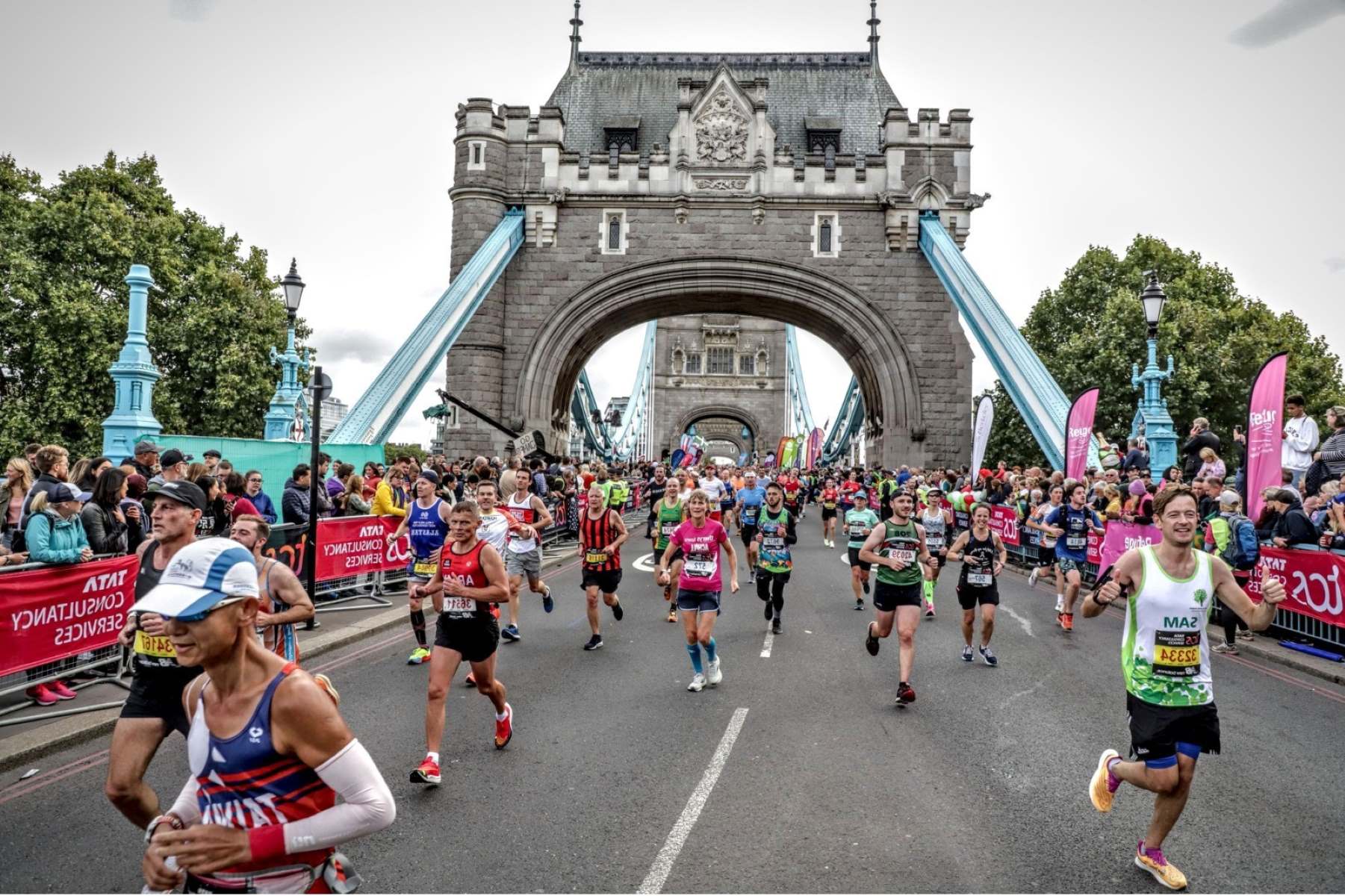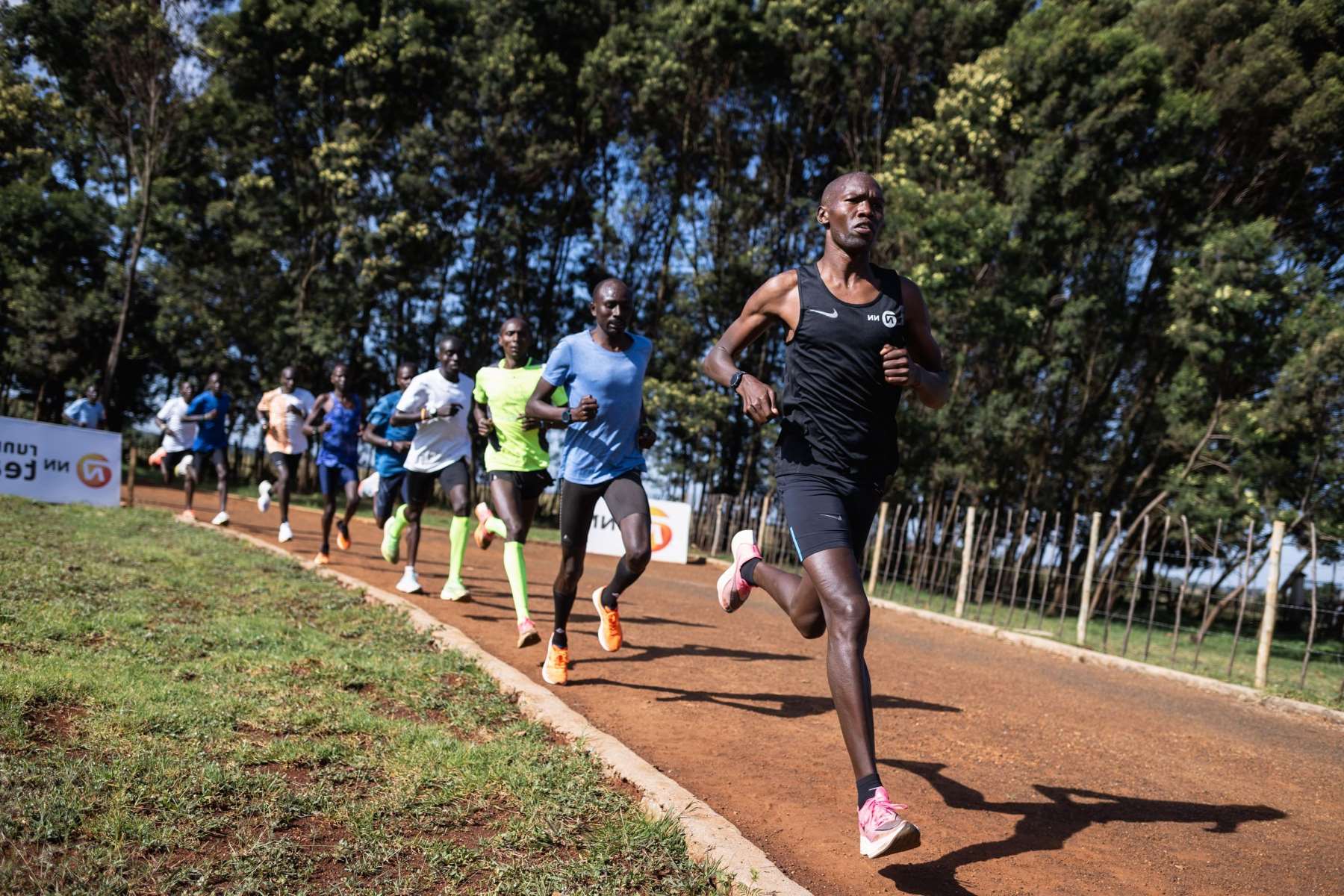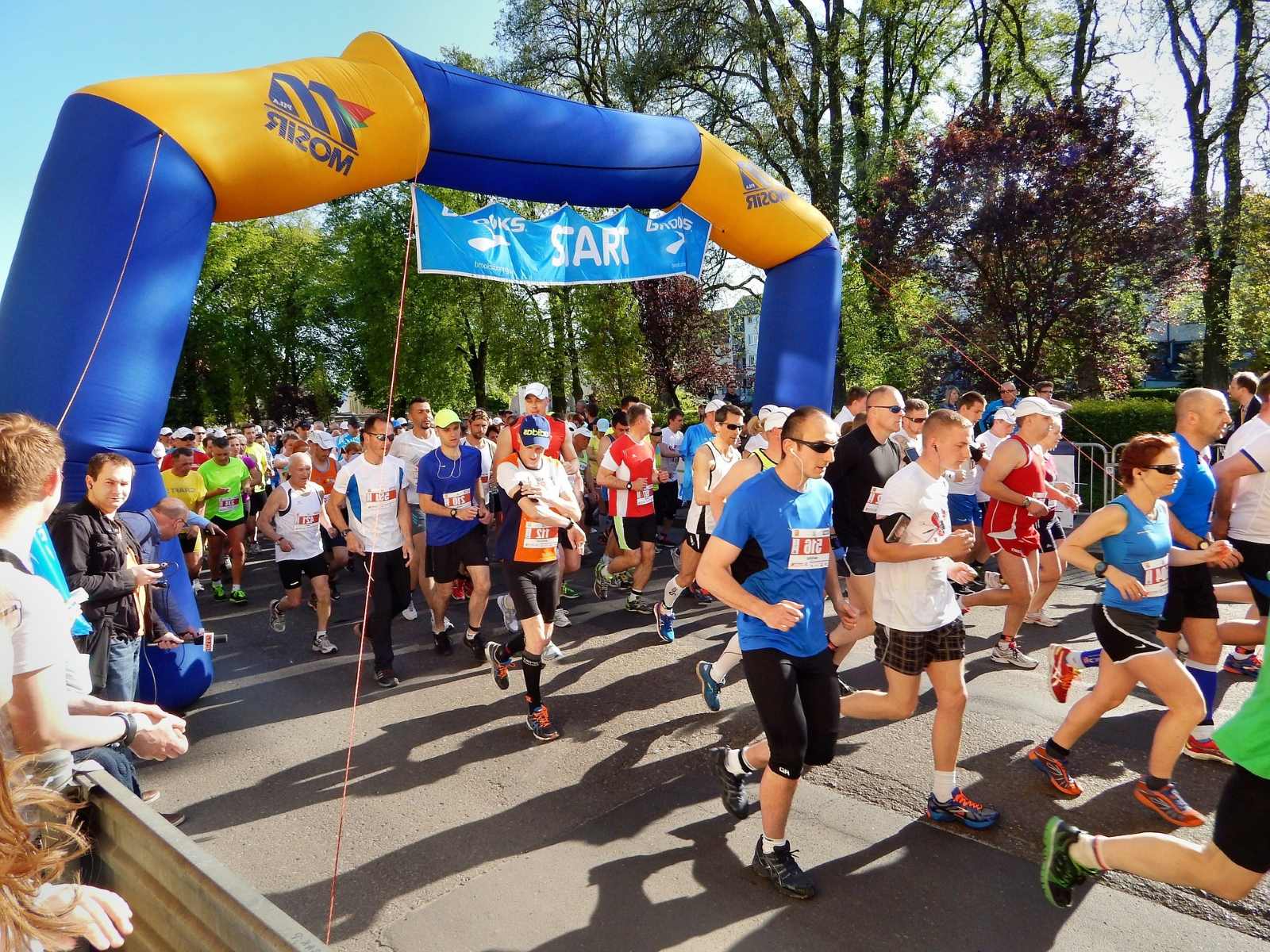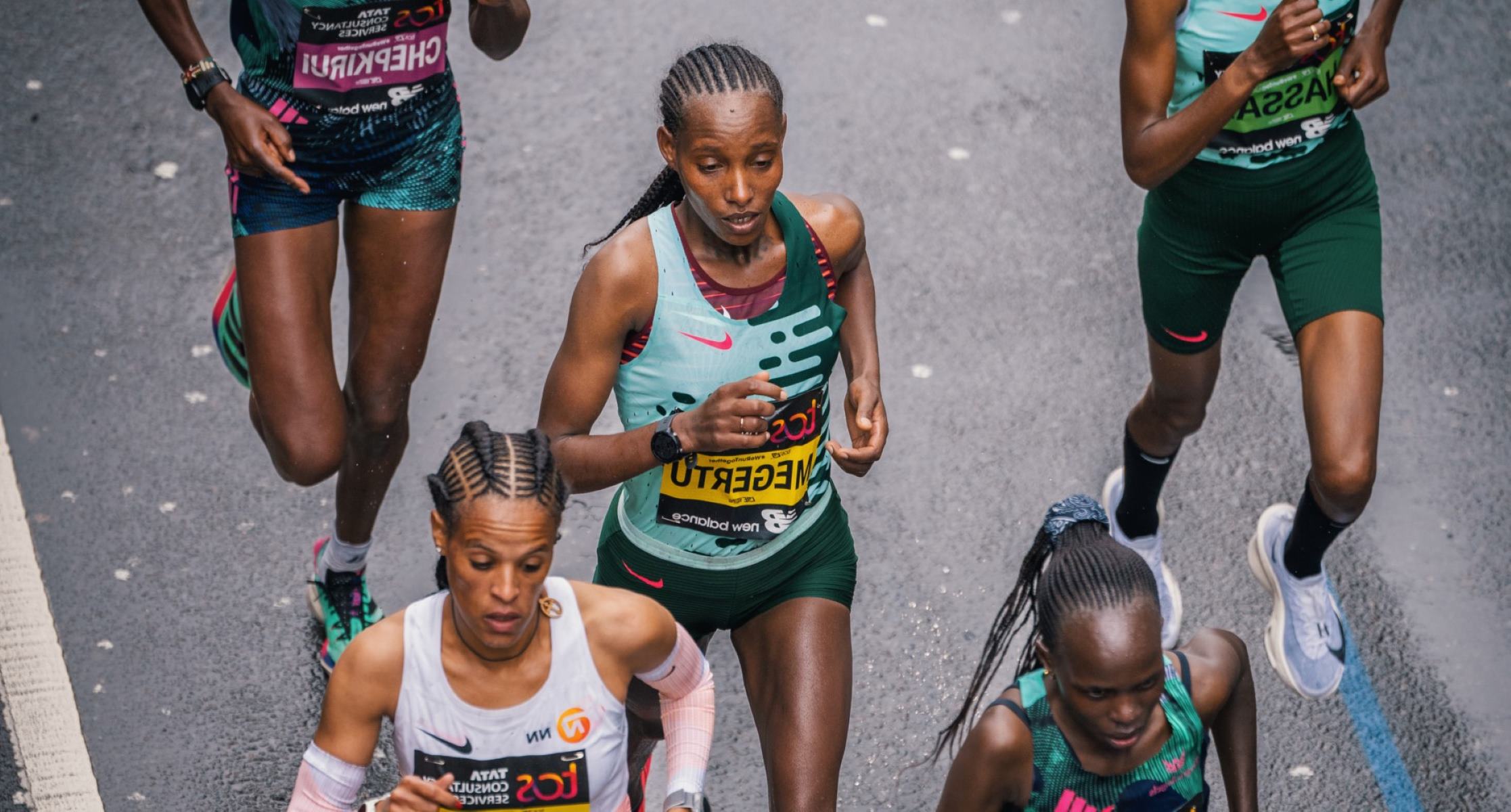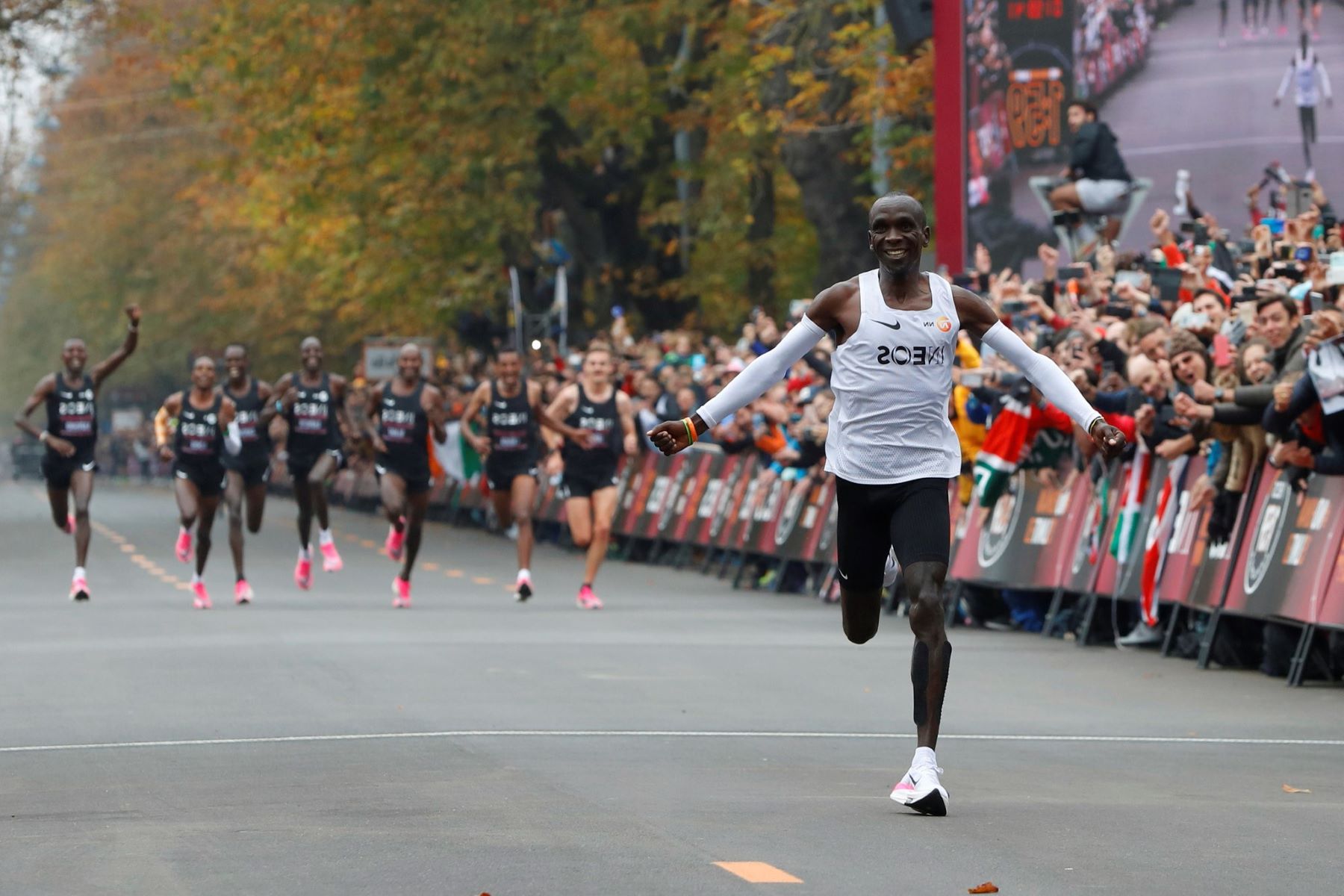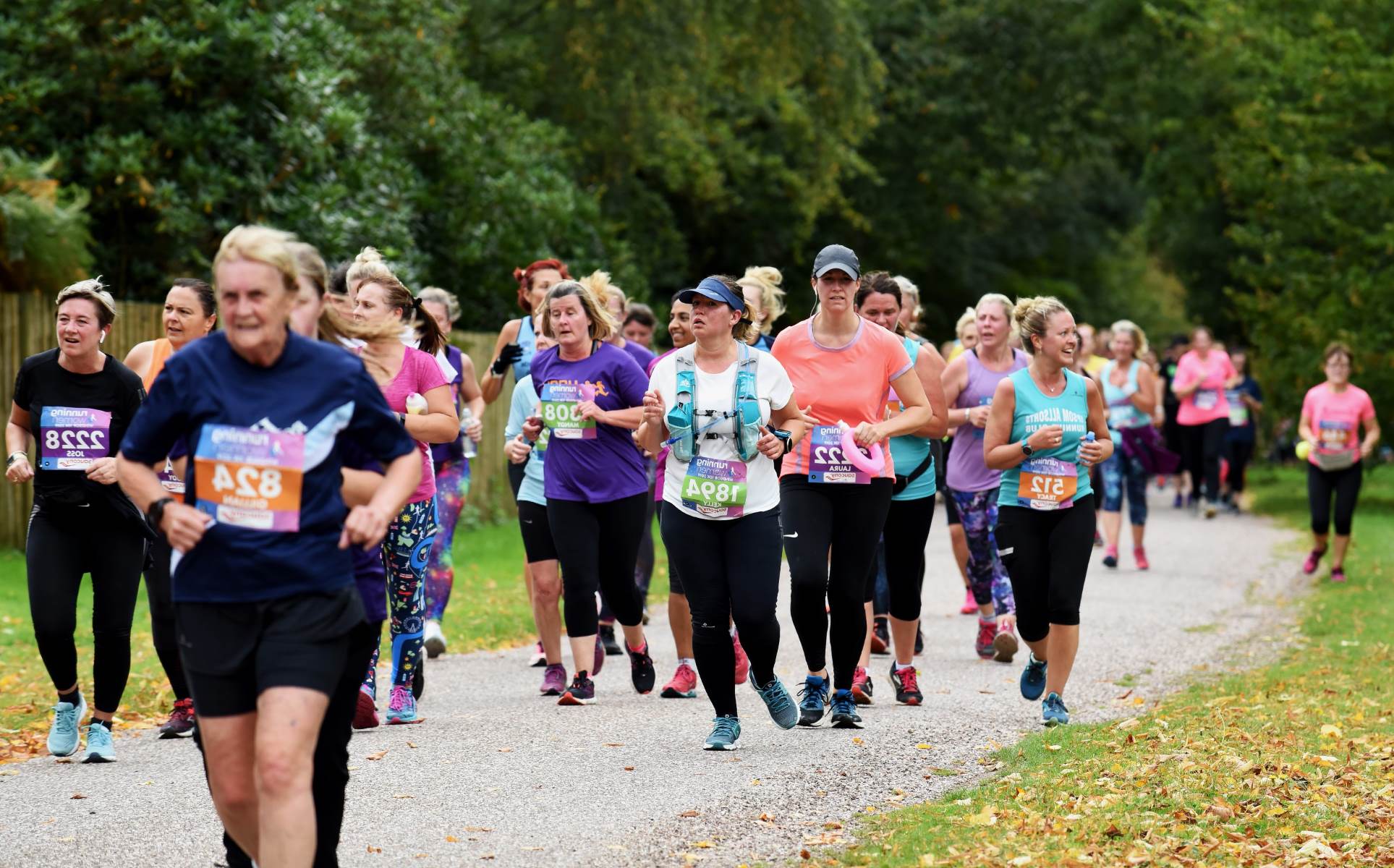Home>Training & Techniques>Is It Advisable To Participate In A Marathon Without Any Training?


Training & Techniques
Is It Advisable To Participate In A Marathon Without Any Training?
Published: February 29, 2024
Participating in a marathon without proper training and techniques can lead to injury and exhaustion. Discover the importance of training before taking on this challenge.
(Many of the links in this article redirect to a specific reviewed product. Your purchase of these products through affiliate links helps to generate commission for Therunningadvisor.com, at no extra cost. Learn more)
Table of Contents
The Importance of Training for a Marathon
Training for a marathon is not just a suggestion; it's a crucial component of preparing for the physical and mental demands of the race. Whether you're a seasoned runner or a novice, the significance of training cannot be overstated. Here's why it's essential:
-
Physical Preparedness: Running a marathon places significant strain on the body. Without proper training, the risk of sustaining injuries such as muscle strains, stress fractures, and overuse injuries escalates. Training gradually increases endurance, strengthens muscles, and improves cardiovascular fitness, thereby reducing the likelihood of injury during the race.
-
Mental Endurance: Endurance events like marathons require mental fortitude as much as physical strength. Training not only conditions the body but also prepares the mind for the challenges ahead. It instills the mental resilience needed to push through fatigue, self-doubt, and the inevitable discomfort that arises during a marathon.
-
Understanding Pace and Strategy: Training allows runners to gauge their pace, understand their body's limits, and develop a race strategy. It helps in determining the optimal pace to maintain throughout the marathon, ensuring that energy reserves are managed effectively to avoid hitting the proverbial "wall."
-
Familiarity with Race Conditions: Training provides an opportunity to simulate race conditions, such as running in various weather conditions, on different terrains, and at different times of the day. This familiarity can be invaluable in preparing for the actual race day, reducing anxiety and uncertainty.
-
Injury Prevention: Proper training includes cross-training, strength training, and flexibility exercises, which collectively contribute to injury prevention. Strengthening supporting muscles and maintaining flexibility can significantly reduce the risk of common running-related injuries.
In essence, training for a marathon is not just about physical fitness; it's about mental preparedness, strategy development, and injury prevention. It's an investment in one's overall well-being and success on race day. Therefore, it's advisable to approach marathon participation with a commitment to adequate training, ensuring a fulfilling and safe experience.
Potential Risks of Participating in a Marathon Without Training
Participating in a marathon without adequate training poses significant risks that can detrimentally impact both physical well-being and the overall marathon experience. These risks extend beyond mere physical discomfort and can have lasting consequences. Here are the potential risks associated with undertaking a marathon without proper training:
-
Increased Risk of Injury: Without the necessary training, the body is ill-prepared to endure the prolonged and strenuous nature of a marathon. This significantly heightens the risk of sustaining various injuries, including muscle strains, stress fractures, and overuse injuries. The lack of conditioning and preparation leaves the body vulnerable to the intense physical demands of the race, leading to potential long-term repercussions.
-
Exhaustion and Fatigue: Inadequate training can result in premature exhaustion and debilitating fatigue during the marathon. Without the requisite endurance built through training, the body may succumb to exhaustion early in the race, impeding progress and potentially leading to an inability to complete the marathon. This not only diminishes the overall experience but also poses health risks due to excessive strain on the body.
-
Mental and Emotional Strain: The mental fortitude required to endure a marathon is often underestimated. Without proper training, participants may encounter overwhelming mental and emotional strain as they confront the physical challenges of the race. This can lead to heightened anxiety, self-doubt, and an overall negative impact on the mental well-being of the individual.
-
Potential Long-Term Health Implications: Engaging in a marathon without adequate training can have lasting effects on one's health. Pushing the body beyond its unprepared limits can lead to chronic injuries, exacerbate existing health conditions, and potentially result in long-term damage. The strain placed on the cardiovascular system and musculoskeletal structure without proper training can have implications that extend far beyond the immediate post-race recovery period.
-
Diminished Enjoyment and Fulfillment: A lack of training can significantly diminish the overall enjoyment and fulfillment derived from participating in a marathon. Instead of relishing the experience and celebrating the accomplishment, individuals may find themselves enduring a grueling and unpleasant ordeal, overshadowing the sense of achievement that should accompany completing a marathon.
In summary, the risks of participating in a marathon without training are multifaceted, encompassing physical, mental, and emotional aspects. It is imperative to recognize the potential consequences of inadequate preparation and prioritize comprehensive training to mitigate these risks, ensuring a safer, more enjoyable, and fulfilling marathon experience.
Tips for Properly Training for a Marathon
Proper training is the cornerstone of marathon preparation, laying the foundation for success on race day. Whether you're a first-time marathoner or a seasoned runner, effective training is essential for optimizing performance and minimizing the risk of injury. Here are valuable tips to ensure that your marathon training is comprehensive and effective:
-
Establish a Training Schedule: Develop a structured training schedule that encompasses a suitable timeframe leading up to the marathon. This schedule should include a gradual increase in mileage, cross-training, rest days, and tapering periods to allow the body to recover and adapt to the increasing demands of marathon running.
-
Gradual Mileage Build-Up: Avoid the temptation to rapidly increase your mileage. Gradually build up your weekly mileage to allow your body to adapt and reduce the risk of overuse injuries. A recommended guideline is to increase mileage by no more than 10% each week.
-
Incorporate Cross-Training: Supplement your running with cross-training activities such as cycling, swimming, or strength training. Cross-training helps improve overall fitness, strengthens supporting muscles, and reduces the risk of overuse injuries by providing variety in your workout routine.
-
Prioritize Rest and Recovery: Adequate rest is as crucial as training itself. Ensure that your training schedule includes rest days to allow for physical and mental recovery. Additionally, prioritize quality sleep to facilitate muscle repair and overall well-being.
-
Nutrition and Hydration: Pay attention to your nutrition and hydration. Fuel your body with a balanced diet that includes sufficient carbohydrates, proteins, and healthy fats to support your training. Stay adequately hydrated before, during, and after your runs to optimize performance and aid in recovery.
-
Listen to Your Body: Pay attention to signals from your body. If you experience persistent pain or discomfort, it's essential to address it promptly and seek professional guidance. Ignoring warning signs can lead to more severe injuries that may derail your training and marathon aspirations.
-
Practice Race-Day Conditions: Familiarize yourself with the conditions you may encounter on race day. This includes running in varying weather conditions, testing different nutrition and hydration strategies, and practicing running at the time of day when the marathon will take place.
-
Seek Professional Guidance: Consider consulting with a running coach or a knowledgeable fitness professional to tailor a training plan that suits your individual needs and goals. Their expertise can provide valuable insights and guidance to optimize your training regimen.
-
Mindset and Mental Preparation: Cultivate a positive and resilient mindset. Mental preparation is just as crucial as physical training. Visualize success, set realistic goals, and develop strategies to overcome mental hurdles during the marathon.
-
Celebrate Milestones: Acknowledge and celebrate your training milestones. Each long run completed, personal best achieved, and obstacle overcome is a testament to your progress and dedication. Embrace these victories as motivation for the journey ahead.
By incorporating these tips into your marathon training regimen, you can enhance your preparedness, minimize the risk of injury, and optimize your performance on race day. Remember, effective training is not just about reaching the finish line; it's about enjoying the journey and embracing the physical and mental growth that accompanies the pursuit of marathon success.
Alternatives to Participating in a Marathon Without Training
Participating in a marathon without adequate training can pose significant risks to both physical well-being and the overall experience. However, if circumstances prevent comprehensive training, there are alternative options that can provide a fulfilling and enjoyable running experience without the potential pitfalls of an unprepared marathon attempt.
Opt for a Shorter Distance Race
Consider participating in a shorter distance race, such as a 5K or 10K event, instead of a full marathon. These races offer a rewarding running experience while requiring less rigorous training compared to a marathon. Opting for a shorter distance allows you to set achievable goals, experience the thrill of a race day, and enjoy the sense of accomplishment without subjecting your body to the extreme demands of a marathon.
Virtual Race Participation
In recent years, virtual races have gained popularity as a flexible and accessible alternative to traditional races. Virtual races allow participants to complete the race distance at their own pace, in a location of their choice. This option provides the opportunity to set personal running goals, earn race medals, and connect with a broader running community, all while accommodating individual schedules and training limitations.
Engage in a Relay Race
Participating in a relay race offers a collaborative and dynamic running experience. Relay races involve a team of runners completing segments of the overall race distance, allowing each participant to contribute to the team's collective achievement. This option not only reduces the individual training burden but also fosters camaraderie and teamwork, creating a memorable and enjoyable race day experience.
Focus on Training for Future Races
If time constraints or other factors hinder comprehensive marathon training, consider redirecting your efforts toward preparing for future races. By prioritizing structured training for upcoming events, you can build a strong foundation of fitness and endurance, setting the stage for successful and fulfilling race experiences in the future. This approach allows you to invest in thorough preparation, ensuring that you can fully embrace the challenges and rewards of marathon participation when the timing is more conducive to comprehensive training.
Embrace Recreational Running
Engage in recreational running as a means of maintaining fitness and enjoying the physical and mental benefits of the activity. While it may not involve formal race participation, recreational running allows you to savor the joy of running without the pressure of training for a specific event. This alternative fosters a sustainable and balanced approach to running, promoting long-term enjoyment and well-being.
In summary, if participating in a marathon without adequate training is not feasible, exploring alternative running options can provide a fulfilling and enjoyable experience while mitigating the risks associated with unprepared marathon participation. Whether opting for shorter races, virtual events, relay races, or focusing on future training endeavors, there are diverse avenues to embrace the spirit of running and celebrate the journey of personal fitness and achievement.

